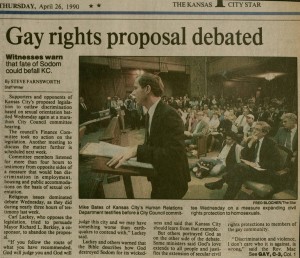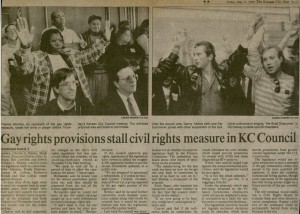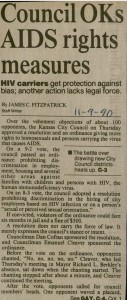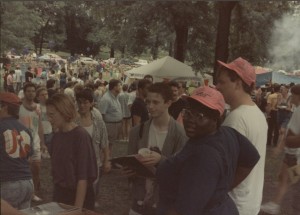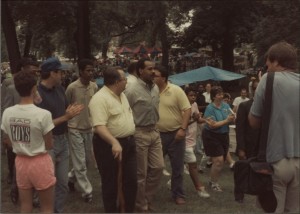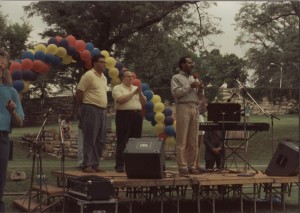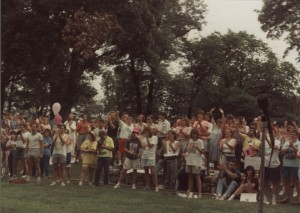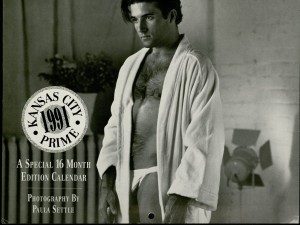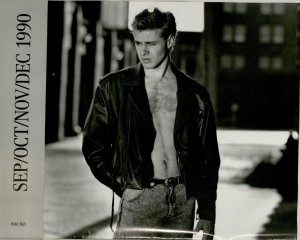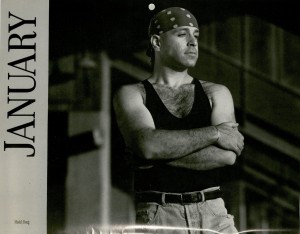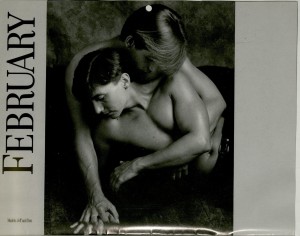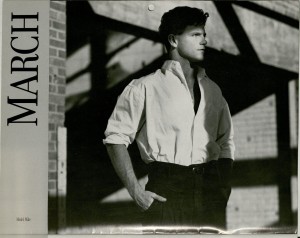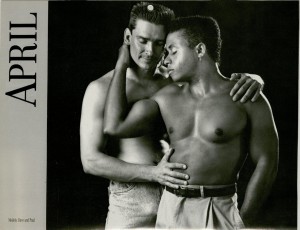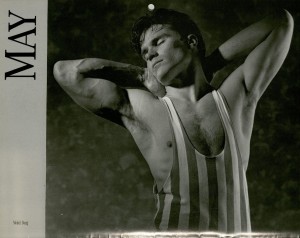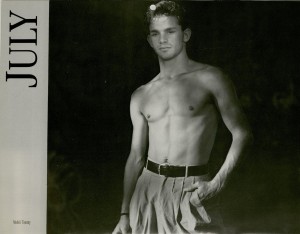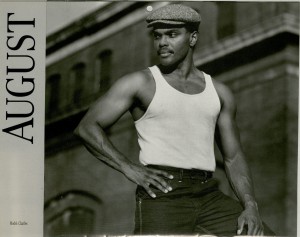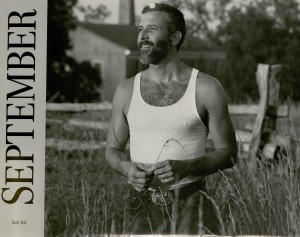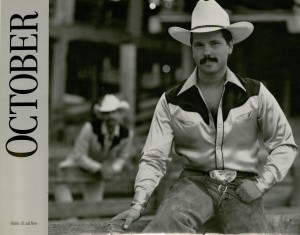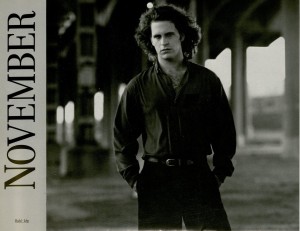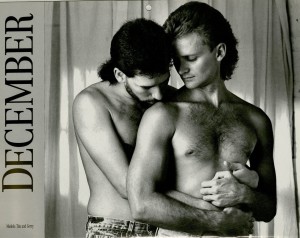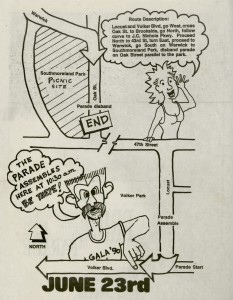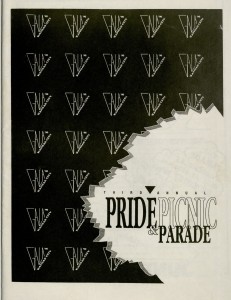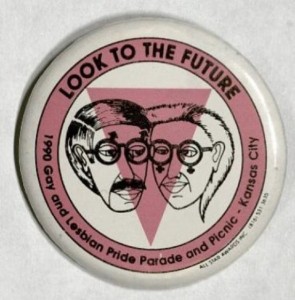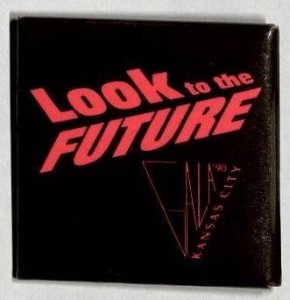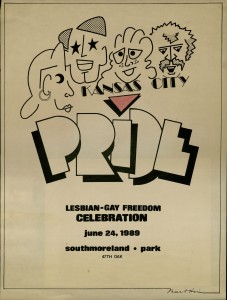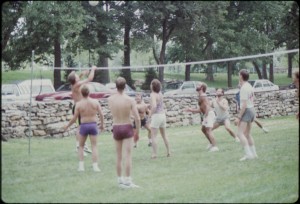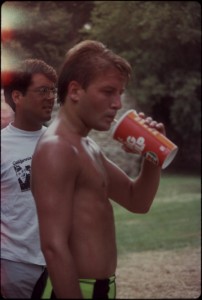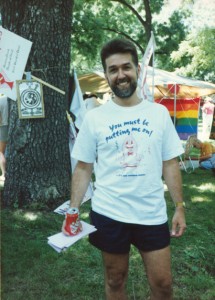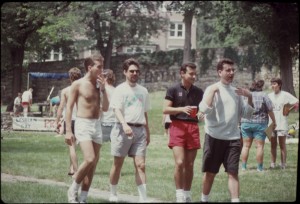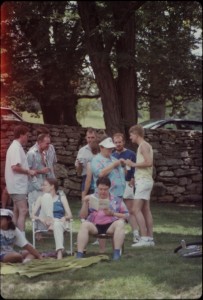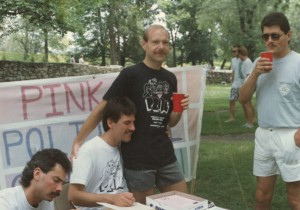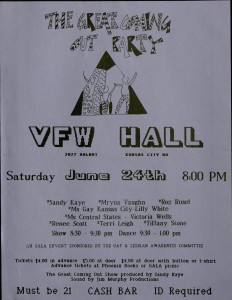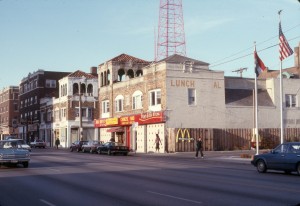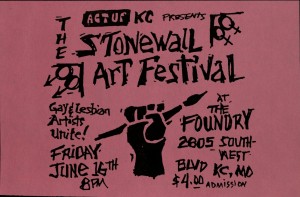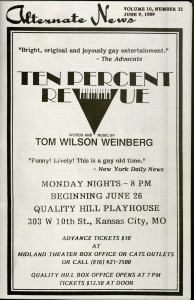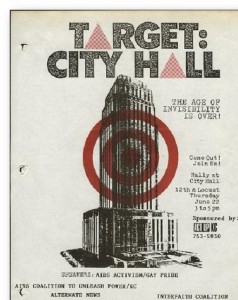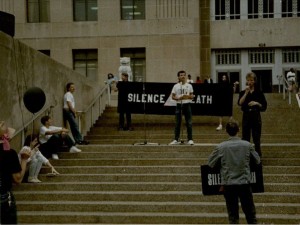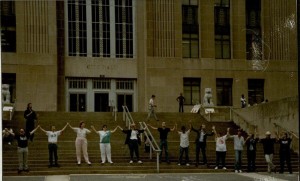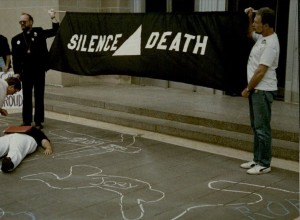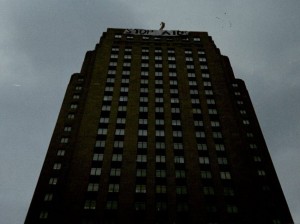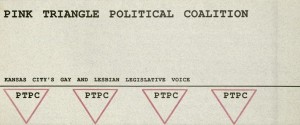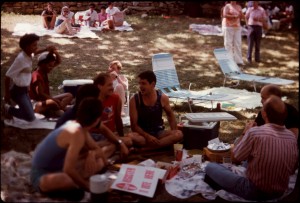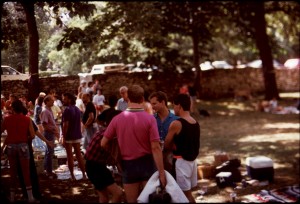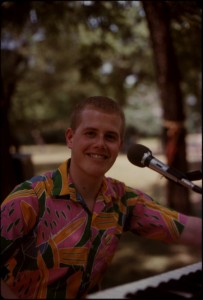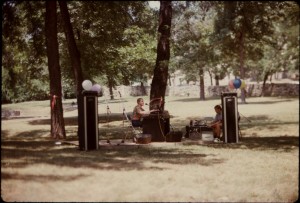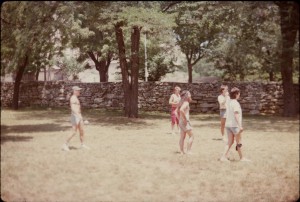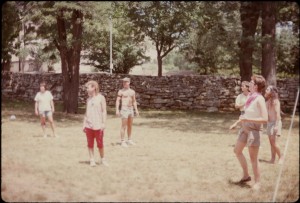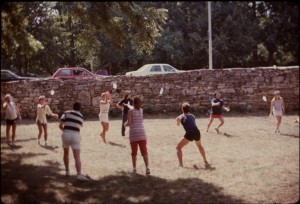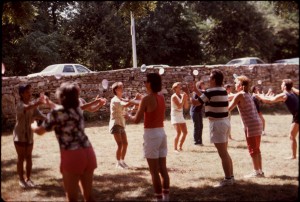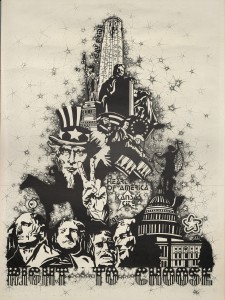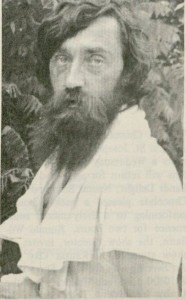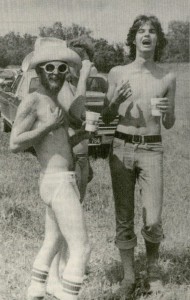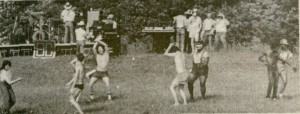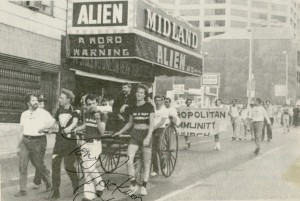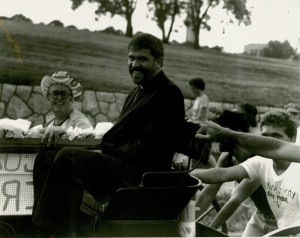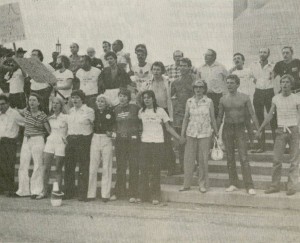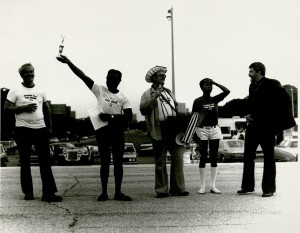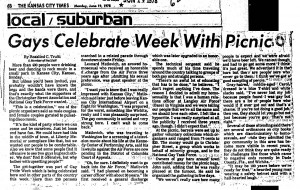The 1991 Pride Celebration was almost no celebration at all. The event was engulfed with political controversy and community rancor.
It the year between the 1990 and 1991 Celebrations, there was much civic and political energy and complementary media attention around attempts to pass a city ordinance that would ban discrimination in housing and employment against gays, lesbians, and those afflicted with HIV/AIDS. Heated City Council and committee debates had occurred all year, and a watered-down version of the full ordinance passed the Council in November of 1990. It extended full protection only to those with HIV/AIDS, and even then only to comply with the recently passed federal Americans with Disabilities Act.
Emmanuel Cleaver was elected mayor the following spring, after actively seeking the gay and lesbian community’s support in light of the impressive performance in the primary election by activist Jon Barnett, who ran for city council as an out gay man and garnered over 7,000 votes. Despite his courting of the community, Cleaver decided against proclaiming June 15-23 Gay and Lesbian Pride Week. Out of town when the decision was announced, a mayoral spokesman stated “It is his feeling that the issuance of such a proclamation would serve as a divisive force in our community and work against creating an inclusive and harmonious city”. The discord referred to was evident in the flood of calls to City Hall against the proclamation, the Pride Celebration, and gays and lesbians in general, spearheaded by one Connie Cierpiot, host of a local Christian radio show and leader of the anti-gay group FIRED-UP (Freedom Involves Responsibility Exposing Decadence and Upholding Principle).
To make matters worse, Cleaver later announced he was cancelling his original plans to attend the Pride picnic and parade out of concern for his safety. The feelings of betrayal this act engendered were made worse by Cleaver’s decision to attend the annual Jewel Ball on the Friday night before Pride. Normally it wouldn’t have mattered, but the organizers of the all-white debutante ball had neglected to send the Mayor an invitation and hand-delivered it just three days before the event. Cleaver and his wife would have been the first African-Americans attend in the event’s thirty-seven year history. These actions were seen by many in the gay and lesbian community as examples of long-standing Kansas City segregation and racism, and they were infuriated that the Mayor would kowtow to it.
So the day of the parade and picnic arrived, and Cleaver backtracked once again and wisely attended the picnic. He was cheered when he took the stage at Southmoreland Park and gave a rousing and dramatic speech.
Himself an ordained, practicing minister, Cleaver stated that “every single living being in this community must be respected…Over the past three weeks I have listened to people who call themselves Christian. And in the same sentence, they have the theological audacity to speak of other children of God as if they were trash. The God I serve ‘don’t make no trash'”.
His words were met with resounding cheers.
Even Mrs. Cleaver was caught up in the moment, taking the stage with a smile and nodding toward the Nelson-Atkins Museum across the street, site of the previous evening’s Jewel Ball: “After attending the Jewel Ball last night, I had to come to the high point of my weekend here today”.
The Cleavers’ appearance at the Pride Celebration not only healed wounds in the community, it had tangible results as well. During his speech, Cleaver announced the formation of an official commission to investigate the status of gays and lesbians in Kansas City and charged it with reporting back to him in sixty days. The commission’s work would greatly influence the passage of the non-discrimination ordinance in 1993.

